Monday, 2/5/2024

The School of Economics and Management at the University of
Minho is proud to announce that its doctoral student has defended his doctoral
thesis entitled "Essays on the Socioeconomic Impacts of Digital
Government".
The most recent thesis defense at the School of Economics
and Management at the University of Minho has made significant contributions to
understanding the impacts of digital transformation in the public sector. PhD
student João Martins successfully defended his thesis "Essays on the
Socioeconomic Impacts of Digital Government", which offers a comprehensive
analysis of the benefits and challenges of digital government on the economy
and society.
According to his own abstract, his thesis is made up of four
empirical essays based on a variety of databases, investigating the potential
of digital government for administrative simplification, improving the business
environment and reducing corruption, without leaving aside the challenges
inherent in the digital divide.
"The
thesis entitled "Essays on the Socioeconomic Impacts of Digital
Government" studies different dimensions and impacts of the digital
transformation of the public sector on the economy and society. Composed of
four independent essays, using a predominantly empirical approach and different
types of databases, the thesis analyzes the potential benefits of digital
government, namely in terms of administrative simplification, improving the
business environment and reducing corruption, as well as the challenges
associated with it, specifically in terms of the digital divide. One of the
chapters of the thesis also analyzes, based on data from the Portuguese public
procurement portal, the occurrence of budget overruns and delays in the
execution of contracts.
The results of the research show that digital government
contributes to improving the business environment by reducing administrative
and regulatory burdens, as well as reducing corruption in the public, executive
and legislative sectors. However, some of these positive effects depend on
contextual factors in different countries. Digital government as a tool to
fight corruption is more effective in contexts where corruption levels are
moderate or high and economic development is medium or low. As a strategy for
improving the business environment, it is more effective in contexts where
institutional development is higher. Digital exclusion is also a factor that
should always be considered in public policies, especially in less developed
countries. This thesis shows that it mainly affects individuals who are less
educated, who are outside the labor market, who live in rural areas and who are
older. Finally, the results of the last essay in the thesis show that more
complex public contracts and public works contracts are associated with a
greater likelihood of budget overruns and delays in execution. Overall, it
contributes to a better understanding of the benefits and challenges associated
with digital transformation and the contexts in which they can be most relevant,
which is important for defining more effective public policies."
João Martins' research is therefore fundamental to the
formation of more efficient public policies adapted to the realities of digital
government.
His doctoral thesis was supervised by professors Linda Veiga
and Miguel Portela, both professors in EEG's Department of Economics.
EEG - School of Economics and Management congratulates João Martins on his defense and wishes him every professional and personal success.
Gabinete de Comunicação
Escola de Economia e Gestão
Universidade do Minho
Telefone: 253 604541
Email: gci@eeg.uminho.pt

